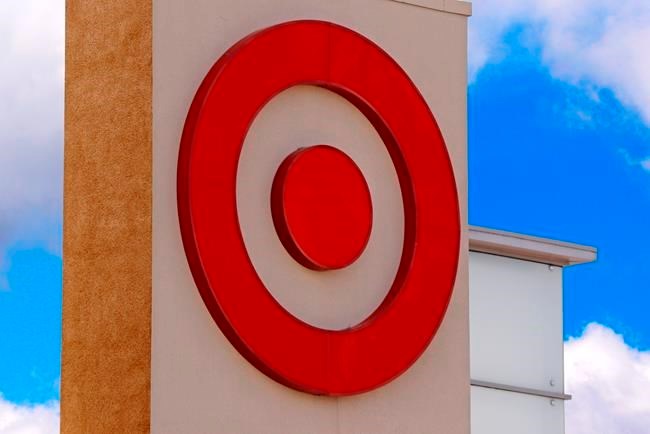NEW YORK — Target Corp. says there could be periodic shipping delays in merchandise from China while the discounter scrambles to stock up on more household essentials in its U.S. stores as it confronts the repercussions of a spreading new virus.
Like many retailers, Target is wrestling with the growing uncertainty of the COVID-19 virus as it upends supply networks. In the past few days, U.S. customers have been crowding online services and grocery and discount stores to stock up on all types of basics from cleaning products to canned food. Amazon.com’s app for Prime Now same-day grocery orders is warning that delivery availability may be limited. Target's CEO Brian Cornell believes shoppers will continue to stock up on essentials for the next few weeks.
Still, Minneapolis-based Target offered a solid profit outlook on Tuesday and said that it hasn't seen anything related to the spreading new virus so far that would affect its financial targets.
The forecast came as the discounter reported strong fourth-quarter profits, though its sales were weighed down by weak demand for toy and electronics during the crucial holiday shopping season.
Target joins a string of other retailers with disappointing sales during the shortest holiday shopping season since 2013. Walmart had a rare sales shortfall, while Macy's and J.C. Penney saw sales decline during the period. Kohl's also posted disappointing holiday sales but on Tuesday reported that fourth-quarter earnings and revenue beat Wall Street expectations. Nordstrom is scheduled to report its results after the markets close Tuesday.
Retailers already dealing with higher costs from an ongoing trade war with China struggled to get potential shoppers through the doors sooner, and the start of 2020 doesn't appear to be offering much relief. The new virus has spread beyond China into other countries. In the United States, there are more than 100 cases in at least 11 states. It's too early to know whether the virus will boost or limit retail sales. But shoppers could start to avoid public spaces like malls and grocery stores if they worry about the virus spreading.
Major companies are cancelling non-essential domestic travel plans for its workers. In fact, Target
During the call with analysts, Target executives said it is working with each of the factories in China and examining the state of the ports.
“We are monitoring the situation hour by hour as conditions evolve,” Cornell said on the call.
Cornell said that Target has seen “aggressive shopping across our stores," and the company is increasingly working with domestic suppliers to bring in more products like household essentials and canned goods.
Target delivered net earnings of $834 million, or $1.65 per share, for the three-month period ended Feb. 1. That compares with $799 million, or $1.52 per share, in the year-ago period. Revenue rose 1.8% to $23.13 billion. Analysts were expecting $1.65 per share on revenue of $23.44 billion, according to FactSet.
Comparable sales — or sales in stores open at least a year — rose 1.5%. That included online sales growth of 20% in the period. That marked its 11th consecutive quarter of growth in comparable sales, a key metric of a retailer's health. Same-day services including picking up orders at the store or curbside, accounted for more than 80%.
At Kohl's, sales at stores opened at least a year were unchanged during the quarter compared to the year-ago period.
Target said that for the year it expects a low single-digit increase in comparable sales and adjusted earnings per share in the range of $6.70 to $7.00. Analysts expect $6.88 per share.
Target also said that it's studying the rollout of smaller locations of 6,000 square feet, the size of a convenience store. That's half the size of Target's smallest store to date. And the company announced that it was testing fresh grocery pickup at its stores for online shoppers.
Shares of Target Corp. fell more than 4%, or $4.63, to $104.43 in afternoon trading as the broader markets also declined.
Anne D'Innocenzio, The Associated Press



